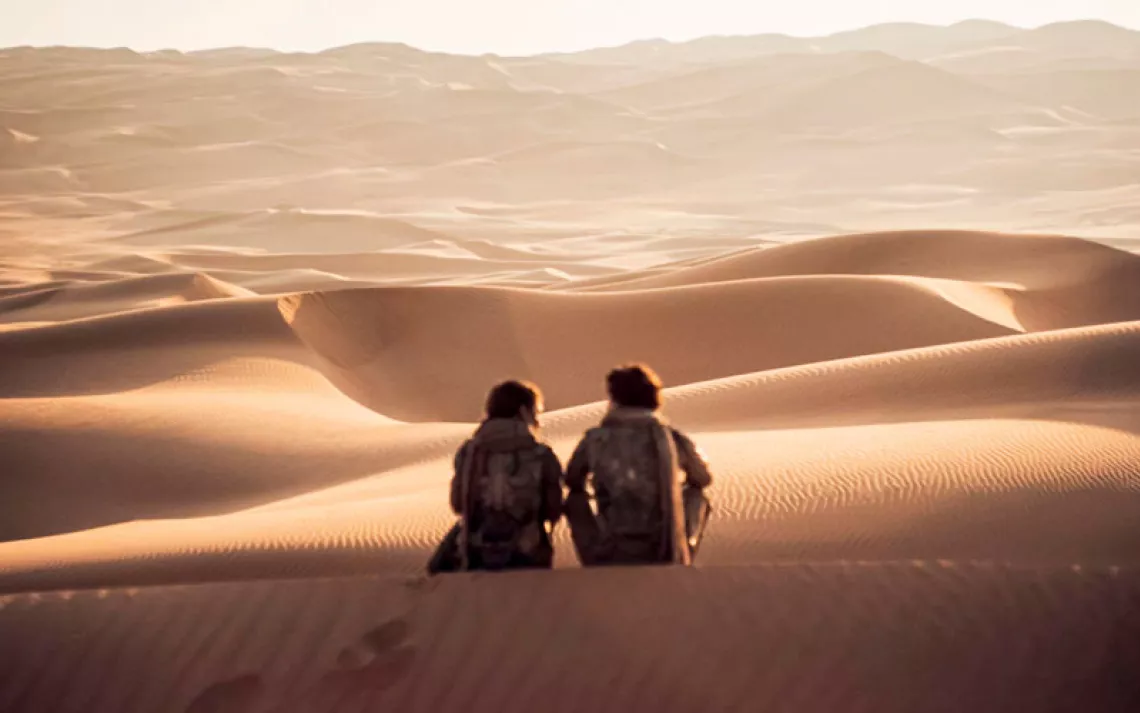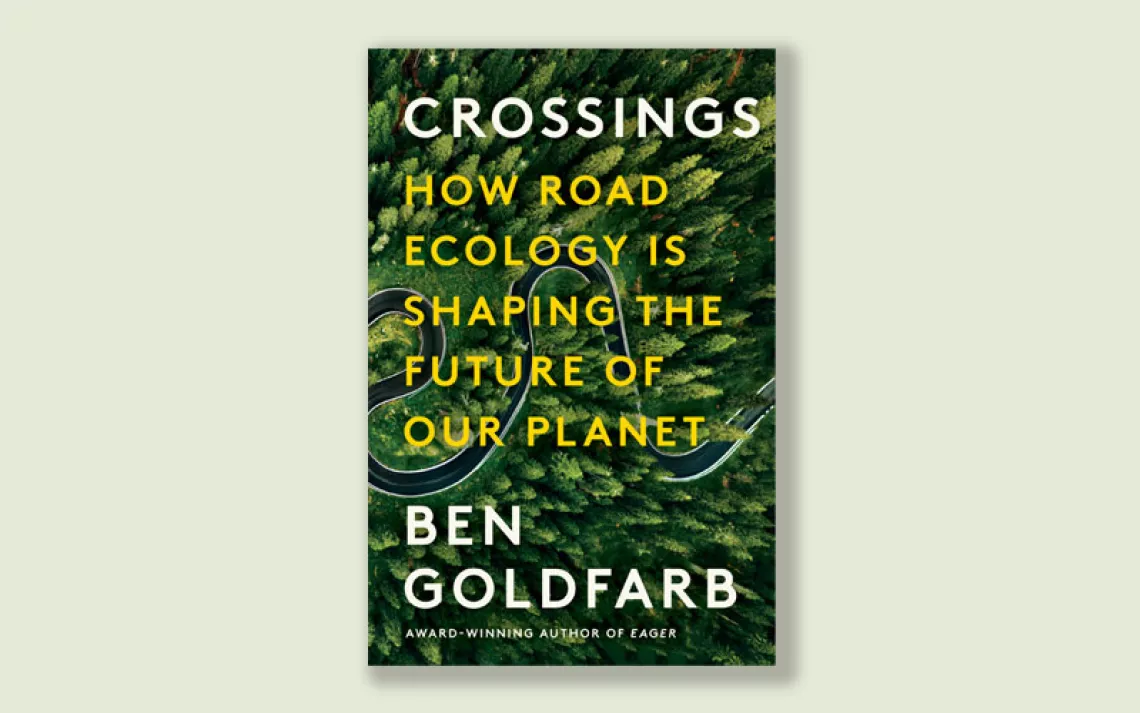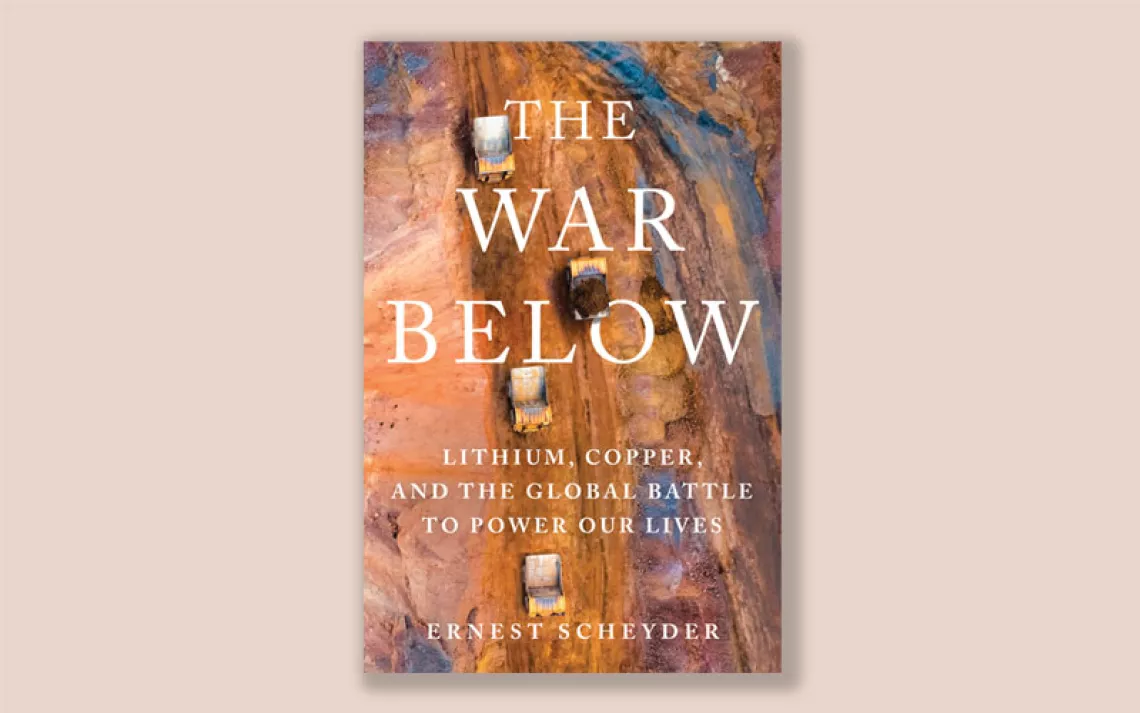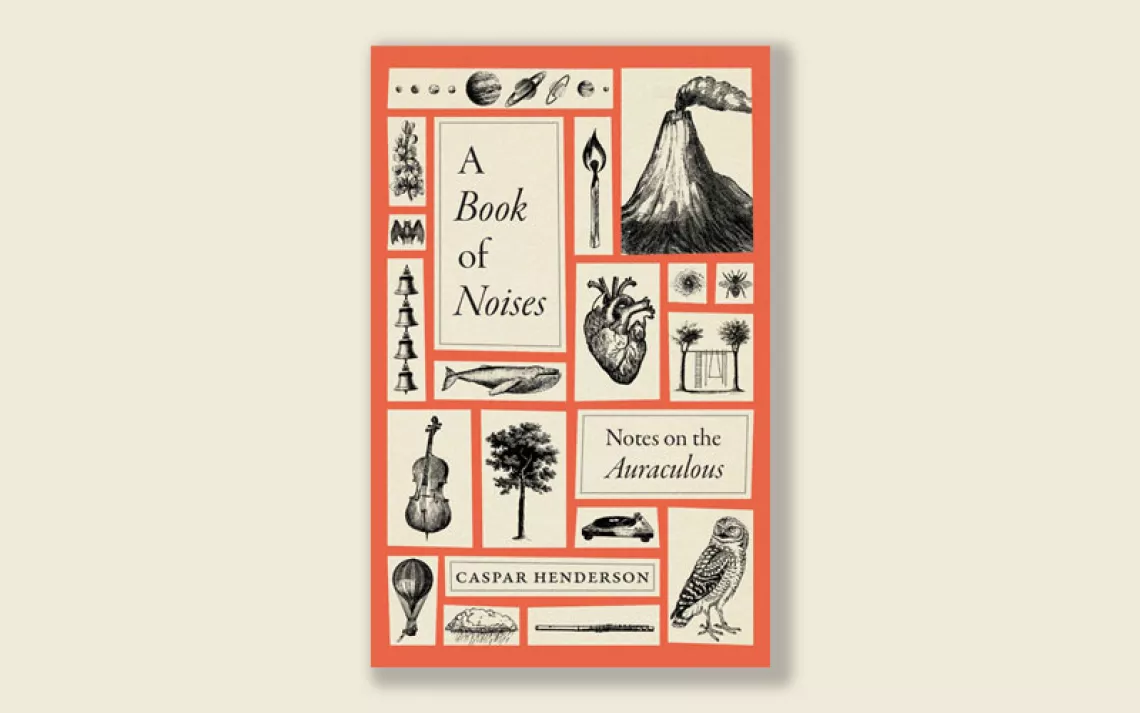How to Maintain Hope in the Face of Climate Catastrophe
Barry Lopez discusses “Horizon,” reverence, the human condition, and leadership
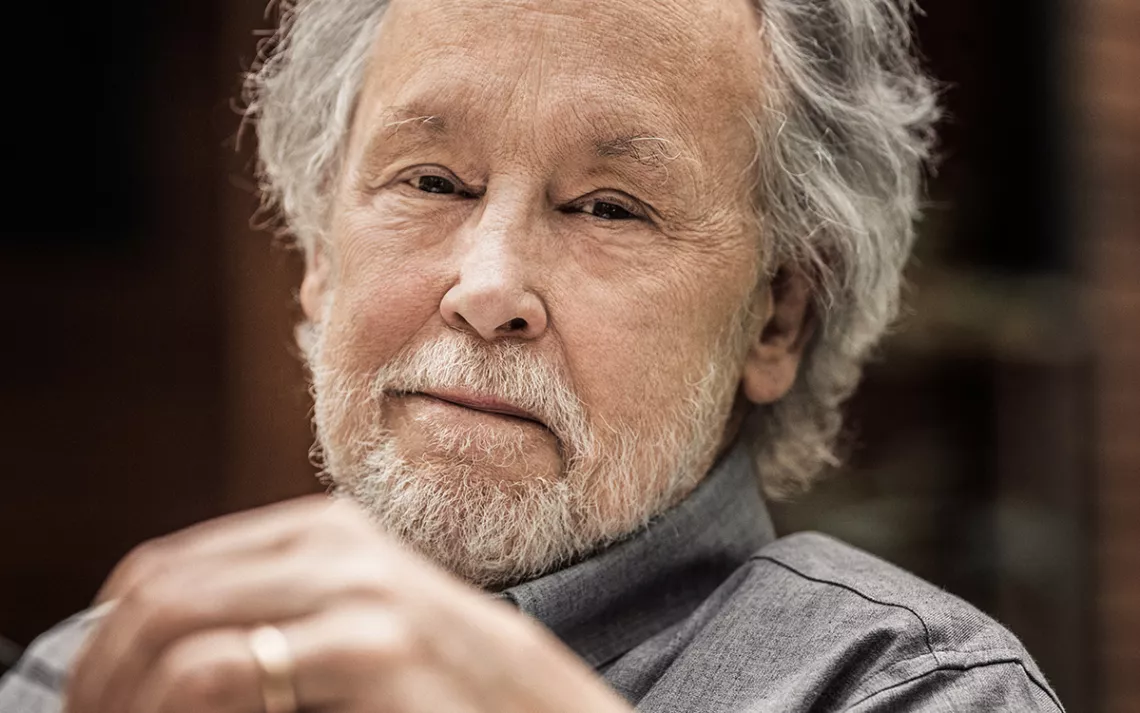
In the mid-1980s, author Barry Lopez familiarized the masses with the perils that creatures and ecosystems in the Far North are facing in his best-selling Arctic Dreams. Almost immediately after it won the National Book Award, Lopez outlined another, meatier book that would take readers back to the Canadian Arctic and to five other far-flung places: the Galapagos, Kenya, Australia, the Antarctic, and the Oregon coast, which the author calls home. Lopez knew the project would likely require decades’ worth of gained perspective; his idea was to immerse himself in distinctive parts of the world to see what he could learn about humanity’s deepest triumphs, failures, and threats to itself. “For 25 years, the book was working on me,” Lopez, now 74, told Sierra. “For five, I worked on it.”
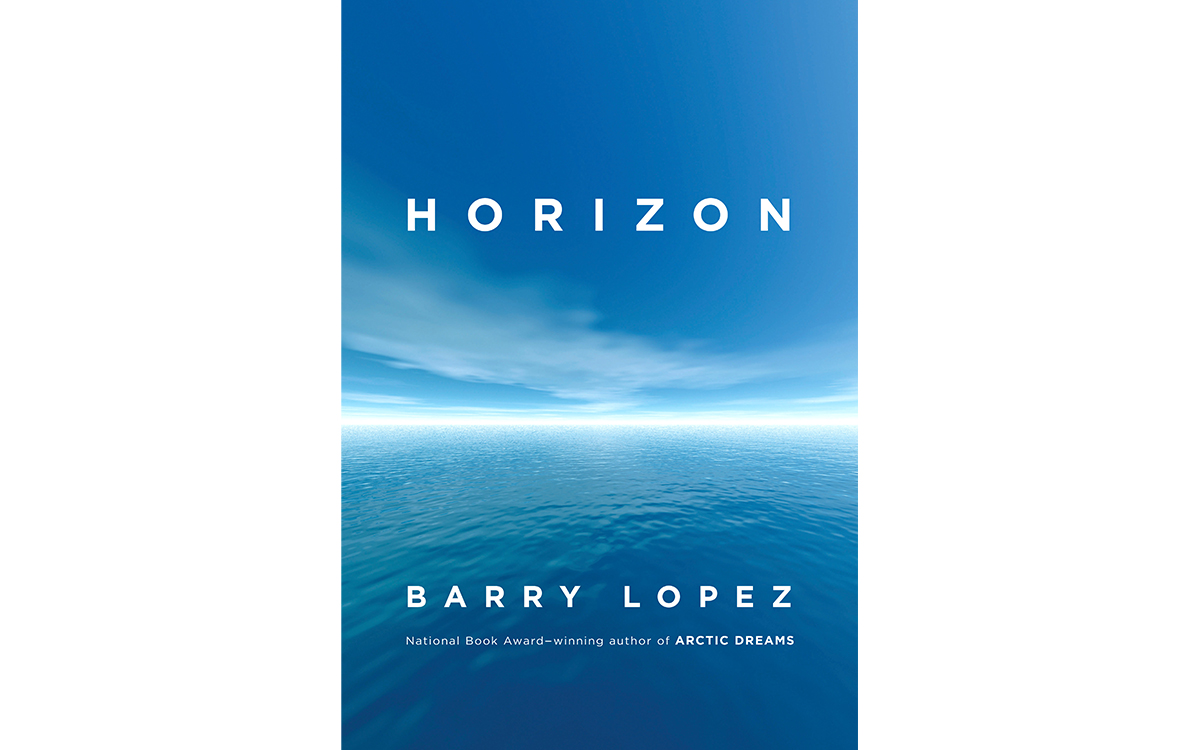 The answers he spent 30 years gathering fill more than 500 pages in Horizon (Knopf, 2019), a semi-autobiographical epic that hit bookshelves just as awareness of global environmental and existential crises seemed to go mainstream. In the book, Lopez artfully reconstructs his experiences, mining their accumulated wisdom and revealing uplifting glimmers of hope. An ambitious meditation on the human condition, as well as humanity’s plight, Horizon is as beautiful as it is bleak.
The answers he spent 30 years gathering fill more than 500 pages in Horizon (Knopf, 2019), a semi-autobiographical epic that hit bookshelves just as awareness of global environmental and existential crises seemed to go mainstream. In the book, Lopez artfully reconstructs his experiences, mining their accumulated wisdom and revealing uplifting glimmers of hope. An ambitious meditation on the human condition, as well as humanity’s plight, Horizon is as beautiful as it is bleak.
In the course of repeatedly traveling to some of the earth’s most distinctive landscapes, Lopez has witnessed a lot of global warming, which lends Horizon an apocalyptic air. In one moment, the author stands on a ship in the Arctic Sea, where he sees “not a scrap of ice.” Lopez also expounds on climate-catastrophe-intensifying factors including ineffectual government systems, racism, xenophobia, and corporate greed. However, he never scolds readers. Rather, Horizon empowers one to consider why we’re complicit and complacent, and where we have the power to shift our thinking to uplift the most knowledgeable voices, embrace partnership-based rather than dominance-based power structures, persevere through hard times with compassion, and effect real change.
Sierra sat down with the veteran environmentalist, humanitarian, and author to learn more about his insights into the human condition and why creating this book left him more hopeful.
***
SIERRA: How did this idea come to you, how did you nurture it for 30 years, and when did you realize you were ready to pick up the pen and tackle it?
Barry Lopez: I think there’s a kind of folklore in America about how writers work and about when a book takes too long to write. But actually, there are very practical reasons for waiting on a book. When Arctic Dreams came out, there was a lot of attention paid to the book, and there was the glow of the spotlight with the National Book Award and things, which put me in a place of really being someone for a while. I’ve never liked that place; I’ve always liked my anonymity. A practical thing for me to think about was, “What’s next, and how can I retreat and explore more deeply?” So my agent and I negotiated this contract with Knopf, and I turned in a four-page outline, shook some hands, and asked everyone to please understand that I wasn’t going to work on this book for years. I knew I needed a lot more life experience and maturity and that I needed to season myself through exposure to a lot of situations in which I had no background.
What kinds of situations?
I think at that time I didn’t know very much about the human plight. I could read about it in a newspaper, but I’d never been in situations where people were desperate for food, places where governments had collapsed completely, places that were at war, like Afghanistan. And I knew that I needed all that experiential knowledge to write a book like the one I imagined. And as I came to understand what the book was, I decided I needed to tackle what was technically the hardest part of the book, the autobiographical material.
Can you talk about the challenges of personal writing?
I’ve never had any urge to talk about myself in my work. The narrator in Arctic Dreams, who of course is me, tends to stay in the background and figuratively move with the reader into the foreground—so they’re experiencing the content by themselves, not with someone who poses as a guide, as someone who knows or pretends to know more than the reader. My belief is that the story is always more important than the writer, and because of that, I think you’d better have a pretty good reason to write about yourself. So I had to travel and learn and get comfortable with that before I got to the point where I thought, I’m now ready to sit down and actually do it.
But you’d already determined the six places you’d explore in Horizon back in 1989?
Yes, that was all clear. I did go back and revisit those places, especially Antarctica. I had to understand, “What are the big threads moving through here, and how can they be augmented with real experience and so forth?” And I visited a lot of other places too—when I began thinking about how Horizon would address plight and human suffering, I called a friend at Mercy Corps, a Portland, Oregon–based NGO that does a lot of hospital work in flooded areas and areas of famine. I said, “I’m running the risk of writing about something I’ve only thought about. I need to go and become immersed in these troubled parts of the world. Can you design a trip that would get me into these different situations?”
And he said yes, and off I went. I went to Lebanon, because I wanted to move through Palestinian refugee camps, and from there I went to Tajikistan, the most economically impoverished of the old Soviet republics, and then came south into Afghanistan, where I stayed with Fatima Gailani, who’s the head of Afghan Red Crescent, the Muslim equivalent of Red Cross. She opened a lot of doors that were very helpful for me and provided a lot of security so I could get to a place called Bamiyan, which is where the massive Buddhas that were destroyed by the Taliban are projected onto a cliff face—I felt it would be metaphorically very rich to go there. So I was in Afghanistan for a while, and then I flew to northern Sumatra, to the province where the Boxing Day tsunami of 2004 killed about 250,000 Indonesians in about 20 minutes.
What specifically were you hoping to gain by visiting these places?
A deeper understanding of plight—of what happens after you witness massive termination of life. What goes on emotionally, and how do people recover? A lot of the young men in the village were at sea that morning—8:30 on a Sunday morning—and they saw the tsunami come in, and they saw it go past all their fishing boats, and they knew it was going to be very big and very bad, and then they saw that tsunami rise to a height of about 80 feet and destroy everything. Hearing those accounts was very informative for me. I called my wife when I was headed home from Jakarta and said, "I have more faith in humanity now than I did when I got off the plane in Beirut," because I’d seen so much necessary work being done by people who had nothing to do with government, nothing to do with business, no economic enterprise. It was simply people helping people. And the power and the grace of what I saw put me in a place of thinking, “The governmental situations all over the world are terrible, and supercharged capitalism is devouring human life everywhere, but here are people who don’t know each other, who have no formal organization, but they’re recovering and they’re comforting people and they’re keeping the panic level down.” So it put me in a frame of mind where I could maintain hope.
Horizon’s sense of hope is what struck me most—I kept thinking about how increasingly relevant it’ll be with all the climate-change-induced natural disasters in store.
Oh, there is a hell coming that is incomprehensible to people—we’re going to lose a lot of people. And the government is not going to get us through, and the business mind is not going to get us through. We’ll have to learn to take care of each other locally and wait for that to spread from one community to another. But I think it’s possible. I don’t know how to develop policy around that, but that’s really not my bailiwick—what I’m trying to do is make people aware of the world outside the American bubble, and to write about it in a way that makes people feel a sense of hope. A lot of reaction to the book outside of reviews and things like that has been, “This book was scary and also comforting. I felt an uplift and also an enhanced sense of capability.” I have so much more hope for humanity having seen those nightmares that I had been through in those countries, and my hope is that the book shows that—that it’s a calm and comforting voice about dark things, and that throughout there’s this elevated sense of possibility rather than despair.
Climate change certainly wasn’t a household term back in 1989. In the outline’s original incarnation, how big of a factor was it?
It was major for me. In 1987, I was working in Antarctica with people drilling ice cores and surveying glaciers, and we had heard this rumor that Al Gore and a number of other senators were coming to be on-site in Antarctic camps. We were all a bit cynical; our politics were all left of center, and at night we’d listened to Radio Moscow—one of the few stations we could get—and we could tell from the newscast that George Bush had been elected. And we all wanted Gore to make jokes with us about the Republican president, but he never took the bait, and we were all very impressed with him. Gore was the only person who walked for a half mile in those temperatures to get to the drill site, and we all thought, “This guy’s OK,” and then on the site he asked really good, pointed questions, and he introduced himself to everyone as “Al Gore,” not “Senator Al Gore,” and when I introduced myself as Barry Lopez, he asked, “What is the spiritual nature of Antarctica?” He’d clearly done his homework—he understood atmospheric chemistry, and the more I talked to him, the more impressed I was. I said, “I’m just a shadow person, but I have met some pretty interesting people who think a lot about these things, so I’ll give you my address and phone number and if you need anything, I’ll try to help.” And for a couple years after that he’d write me and say, “I’ve got X bill in front of me. What’s the most important thing to read to understand the situation?” and so he became a very important person to me, and when he got elected in 1992, I thought we were really gonna get something done. But I think Bill Clinton said, “Don’t bring that global climate change stuff into the White House; it’s gonna be too expensive,” and [Gore] gained enough insight over those next eight years to see that government wasn’t going to be the answer, that whatever elected officials were going to do would be too slow, and not enough. That’s why he said, “I’m out of here,” after the Supreme Court made that terrible decision and gave the presidency to Bush, and went to work on An Inconvenient Truth. So I was very aware of climate change in the late '80s, and I knew this book would address that issue; I just didn’t know quite how.
How did you come up with the title of Horizon?
I wanted to convey movement in the book, because I was trying to rotate the perspective so it never felt like we were at the top or the bottom of the world, but rather in the world. In the opening of the Galapagos chapter, for instance, I’m lying on the bed and I arc my body so I’m looking upside down at the stars, but of course there is no upside down! All that hierarchical language predisposes us to take the same old approach to problem-solving—the upside and the downside, and the this and the that—but that kind of language prevents us from seeing where real solutions lie—as does prejudicial racism and sexism and xenophobia and all sorts of other barriers to real knowledge. How could that woman know anything? She’s a woman. That guy’s black; how could he know anything? I thought, I need to create space in the book that makes it easy for people to think beyond the ordinary limits they’ve been trained to observe through university or whatever. All the way through the book, I’m trying to create the sense that if we just move the edges out—expand the horizon—we’ll be able to think outside of the same ruts.
The same people who created the disaster probably aren’t going to be the same people to find a way out, because they’re committed to certain ways of thinking, to hierarchical arrangements of thought and social subjugation and things like that. And when you take a step back and look at the social movements of the late 20th century—the women’s movement, the Native American movement, the environmental movement—they’re all reactions against hierarchy. They’re saying, if you place men here, and women here, or if you place the natural world here, and the human world there—you’re dead in the water. Maybe not immediately, but in 10 or 30 or 50 or 100 years. It’s not a way of thinking that is going to be helpful. And now with global climate change, ocean acidification, methane gas bleeding out of the tundra, we don’t have much time. What have we got, 20 years, maybe something like that?
We’ve got 11 years, according to the UN’s most recent IPCC report.
Whatever it’s going to be, we have to find a way out. And if we persist in having the same old people at the table, good as they might be intrinsically, we’re dead. We have to bring in other voices, and that’s why there’s that book-long argument in favor of elders, about the ways in which human societies organize themselves to make good decisions. It’s a model that works well when everybody knows who the wise people are—they’re the ones who’ve managed to get over themselves, which means that their deep concern is not for themselves but rather about other people and future generations. So those people are equipped to make the right decisions, because they’re not held in thrall to any system of economics or system of governance like democracy or capitalism.
Communal decision-making can’t be done by someone who’s concerned with making a profit. We’ve done that to such an extent, we’re ruining the environment we live in, and what have we created? People whose nightmares are that the cappuccino machine and the yacht aren’t working, when there are all these other people who have nothing? You can’t have a separation like that and create a solution in terms of social organization, governance, or employment that is actually gonna help. It’ll all just perpetuate the same hierarchical arrangements. The elder system is based on levels of intentionality—when you talk to leaders in these systems you see people operating at the highest level of intentionality; they’re the smart ones. But why aren’t they at the table? Because they’re brown, because they don’t have college educations, et cetera, et cetera. But since we have 12 or 20 years to go, maybe it’s time to forget all that and say, Let’s get the best people here, right now.
 The Magazine of The Sierra Club
The Magazine of The Sierra Club
